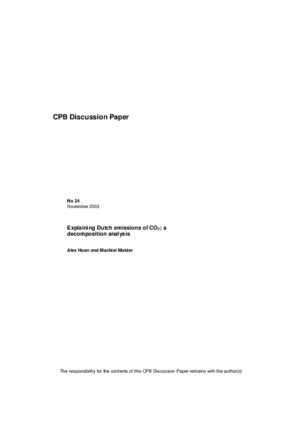Explaining Dutch emissions of CO2; a decomposition analysis
Exportgerichtheid Nederlandse economie vraagt om internationaal CO2-beleid
We are sorry, unfortunately there is no English translation of this page.
Decomposition of CO2 data of the Netherlands shows that much progress has been made with reduction of CO2 emissions by changing to less CO2 intensive technologies.
Moreover, demand shifted to products that are produced with less CO2 emission. Further, shifts in the inputs needed in the production process also managed to decrease the CO2 emissions.
These effects, however, were more than compensated by increased CO2 emission due to economic growth. Especially growth in exports led to substantial more CO2 emissions.
Consequently, emissions of CO2 remain a persistent environmental problem in spite of large improvements in the field of energy efficiency and carbon content of energy use. Policy measures affecting marginal costs of 'dirty' products, like an international system of emissions trading, could affect the demand for these products, and hence decrease emissions efficiently. A different policy may affect the Dutch competitive position, since the emission of CO2 is closely related to exports. In any way, action needs to be taken since the analysis suggests that otherwise the aims of the Kyoto-protocol may not be reached.
